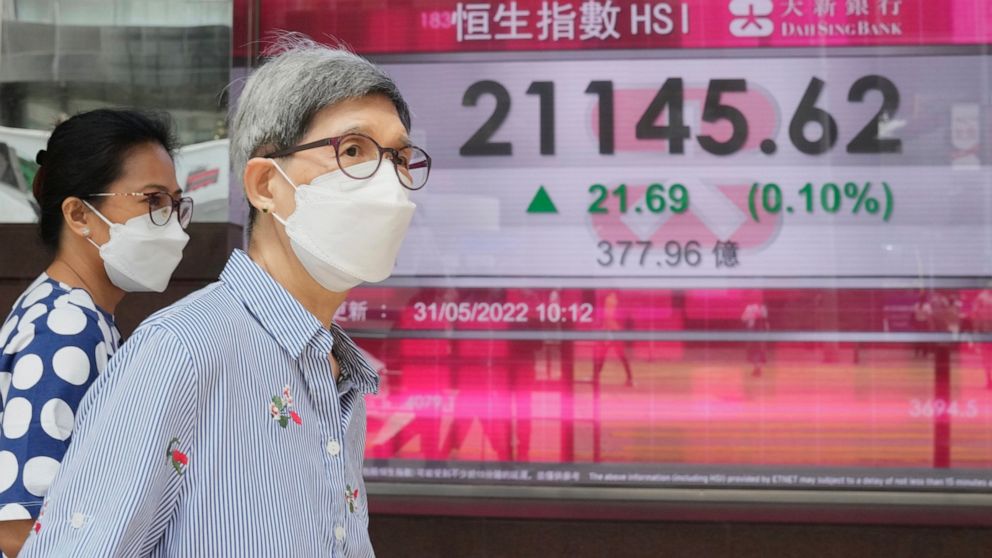Stocks fall on Wall Street, heading for another losing month
NEW YORK — U.S. stocks are falling Tuesday as Wall Street nears the end of a tumultuous month, bruised by worries about a possible recession, inflation and rising interest rates.
The S&P 500 was 1.1% lower in early trading. The Dow Jones Industrial Average was down 421 points, or 1.3%, at 32,791, as of 9:49 a.m. Eastern time, and the Nasdaq composite was 1% lower.
Highlighting the worries about inflation, oil prices jumped above $119 toward their highest levels since the early days of Russia’s war in Ukraine.
Brent crude, the international standard, was up 2% at $119.95 per barrel after the European Union agreed to block the majority of oil imports from Russia. Benchmark U.S. crude was up 3.2% at $118.76.
The nearly 60% jumps for oil prices so far this year have been a big contributor to the very high inflation around the world. Earlier Tuesday morning, a report showed inflation in the 19 countries that use the euro currency hit 8.1% in May, the highest level since records began in 1997.
In the U.S., President Joe Biden will meet with Federal Reserve Chairman Jerome Powell on Tuesday as soaring inflation continues to carve up Americans’ earnings.
The meeting Tuesday will be the first since Biden renominated Powell to lead the central bank and weeks after the Senate confirmed a second term. The White House said the pair would discuss the state of the U.S. and global economy and especially four-decade high inflation, described as Biden’s “top economic priority.”
The S&P 500 is on track for a 0.5% loss for May, which would bring it 14.3% below its record set early this year. But the slight move for the month belies the big swings that shook investors along the way.
For the first time since the dot-com bubble was deflating two decades ago, the S&P 500 tumbled to seven straight losing weeks through mid-May. Slowing data on the U.S. economy heightened worries that high inflation will force the Federal Reserve to raise interest rates so aggressively that it will cause a recession.
Some high-profile retailers also said inflation is eating into their profits, adding more urgency to the concerns. They all combined to bring Wall Street to the brink of what’s called a bear market, where the S&P 500 was on the verge of closing more than 20% below its record.
But stocks bounced a bit from there and have managed to avoid a bear market, at least so far. The S&P 500 is coming off its best week in a year and a half, in part on hopes that inflation may have hit its peak and will begin moderating. Relaxing anti-COVID restrictions in China also helped, easing some of the worries about the world’s second-largest economy and about more snarls to global supply chains.
China’s factory activity contracted again in May, but it’s almost back to growing. More factories, shops and other businesses are being allowed to reopen this week in Shanghai and in the Chinese capital, Beijing, after authorities declared outbreaks under control.
———
AP Business Writer Elaine Kurtenbach contributed.
![]()


